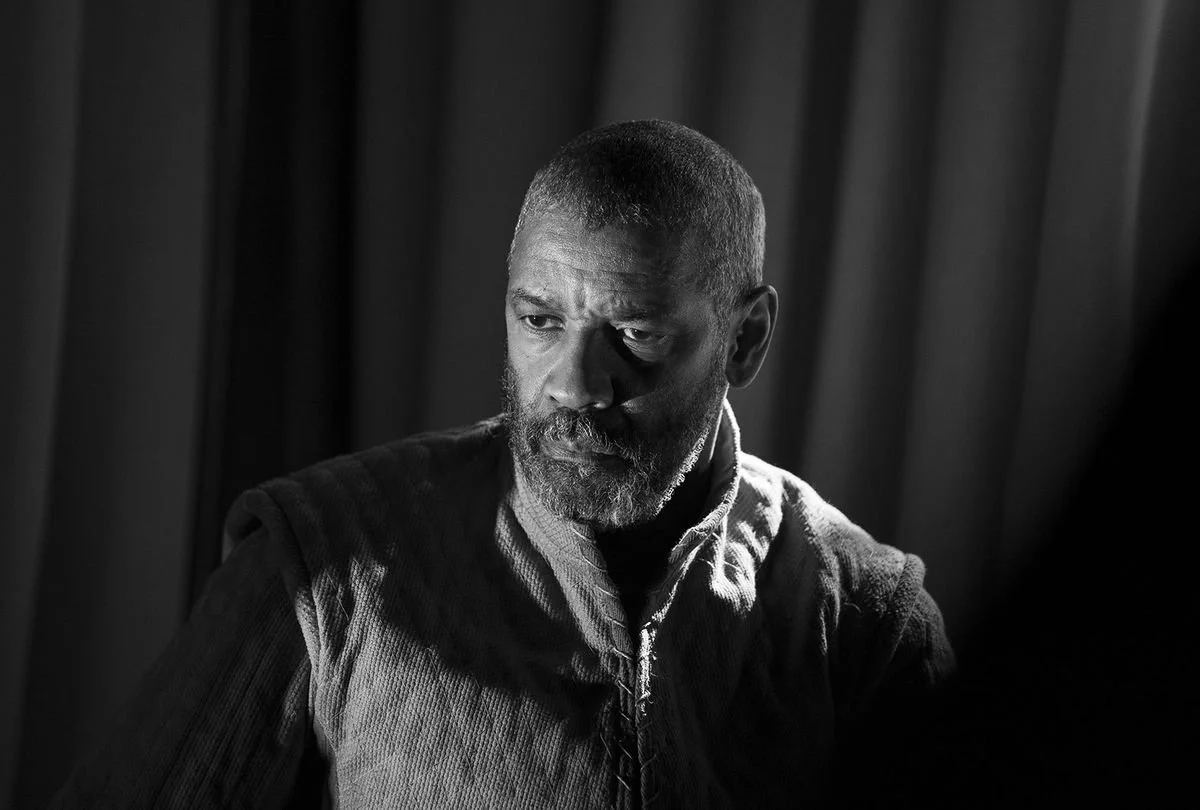'The Tragedy of Macbeth' Review: Joel Coen's Masterful Homage to Shakespeare's Classic Play
The Tragedy of Macbeth expertly blends old with new to create one of the most exciting and accessible Shakespeare adaptations to date.
If you’re not already familiar with the source material, going into a Shakespeare movie can be overwhelming. Beyond the archaic, multi-layered language, his plays also contain extremely rich themes and complex characters that can often be difficult to grasp and dissect upon first viewing. Thankfully, due to director Joel Coen’s unrivalled understanding of the genre and Washington & McDormand’s powerful and grounded performances, ‘The Tragedy of Macbeth’ manages to mostly overcome this by offering an extremely cohesive and comprehensible take on the iconic story. The narrative is exactly the same, but Coen’s simple and restrained storytelling meshes perfectly with Bruno Delbonnel’s introspectively minimalist cinematography in a way that is sure to captivate all audiences.
This Macbeth is far from Shakespeare’s most complicated or elaborate tragedies, following one central narrative throughout and never truly diverging from this. The play chronicles the rise and fall of Scottish nobleman Macbeth, whose interaction with three mysterious witches encourages him to murder the king and take the title for himself - but when his closest friends begin to suspect foul play, Macbeth is forced to make impossible decisions that break him down from the inside in a hopeless plight to hold onto the crown.
From a visual standpoint, The Tragedy of Macbeth may just be the most visually precise and well-crafted film of last year, taking a beautifully minimalist approach both to cinematography and production design, which expertly recreates the atmosphere of isolation and self-reflexivity that comes alongside the medium of theatre. The film’s crisp monochrome images allow for some of the most inventive and memorable shots Coen has ever conceived, and the sparse, geometric set design perfectly complements these. Plenty of the locations, particularly the interiors, are designed completely with sharp, rigid shapes that allow Coen to work with lighting and shadows in truly interesting and innovate ways that manage to project the psyches of the characters directly onto the screen. And when you’re dealing with Macbeth, a play that studies its characters intensely and uses them as clear vehicles to examine its central themes, this form of visual characterization becomes much more effective.
Besides the visual prowess, The Tragedy of Macbeth also boasts an incredibly talented and captivating cast, which reaches far beyond its two leads. At this point, saying that Denzel Washington and Frances McDormand are phenomenal almost seems unnecessary - but it’s completely true. They both command the screen with such undiluted presence that they become impossible to look away from, and they both understand their characters to the finest detail, perfectly representing their respective descents into madness throughout the story. Their chemistry is palpable, and they absolutely nail the simultaneously toxic and tragic relationship that the two characters share. What may be more worth noting, however, is just how impressive and memorable the supporting cast is here, particularly Kathryn Hunter’s performance as the Three Witches (tackling all three roles at once, in one of the film’s only alterations to Shakespeare’s original play). Other standouts include Corey Hawkins as Macduff and Alex Hassell as Ross, both of whom bring a certain mystery and unknowability to their characters that make them endlessly intriguing and entertaining to watch.
It isn’t easy to adapt Shakespeare to the screen whilst maintaining all the layered themes of the original script, but that’s exactly what Joel Coen does with The Tragedy of Macbeth. He clearly understands exactly what it is that makes the story so iconic and beloved, and he translates all of that perfectly to his adaptation - whether it’s the uncomfortable enigma of the supernatural, the complex and poisonous relationship between Macbeth and his wife, or the brutal violence of war constantly lurking in the background. He doesn’t miss a single detail, perfectly maintaining the integrity of the text and crafting a version of the play that Shakespeare himself would be proud of.



